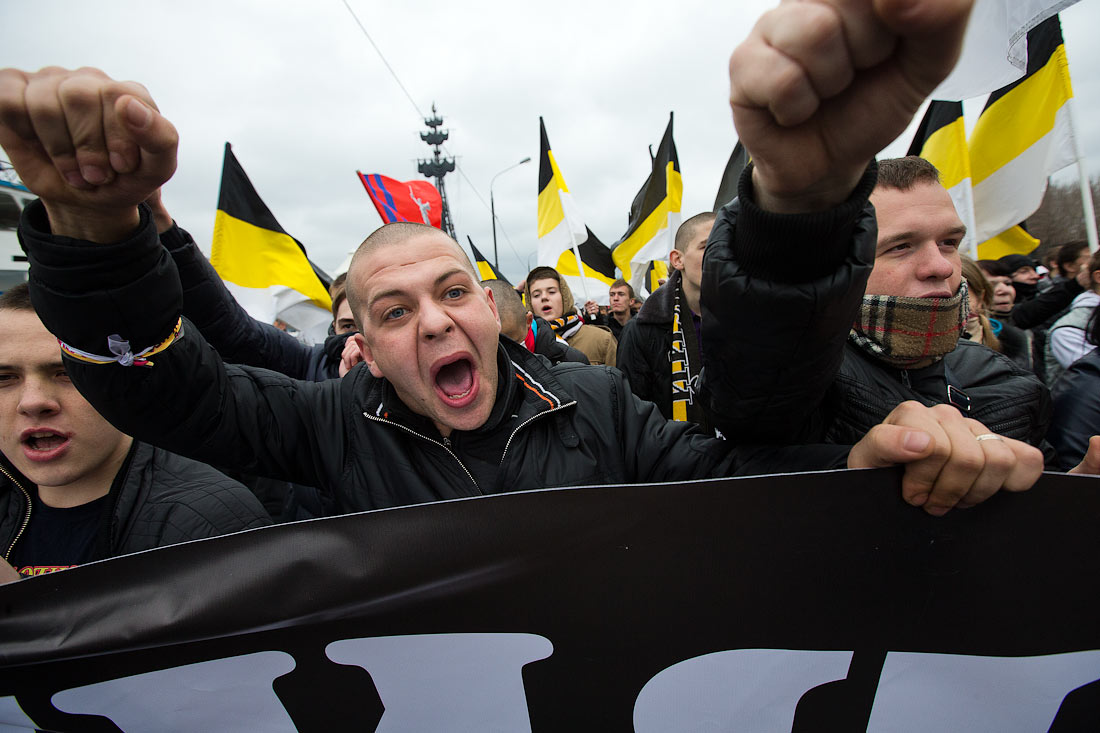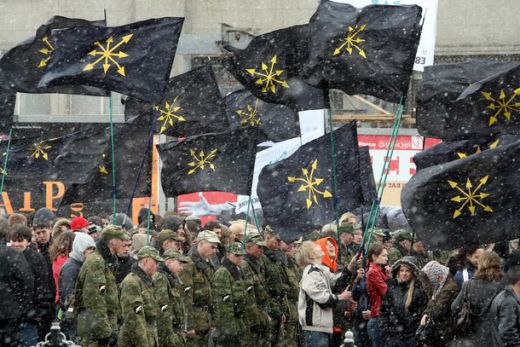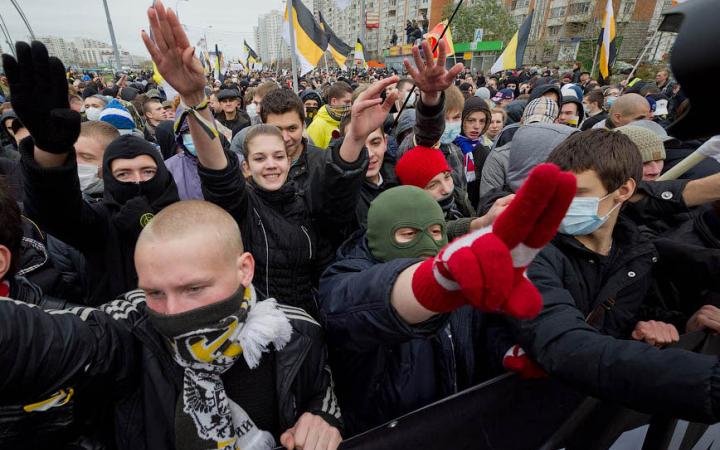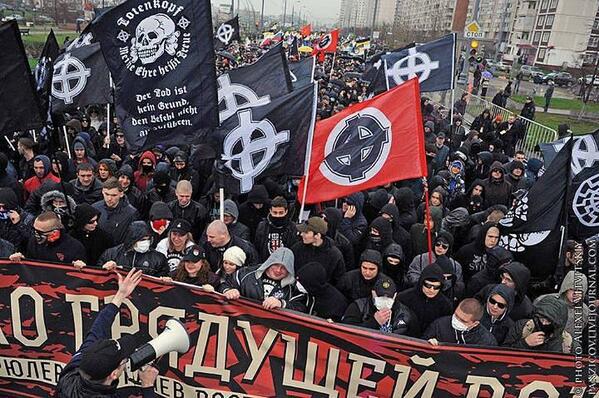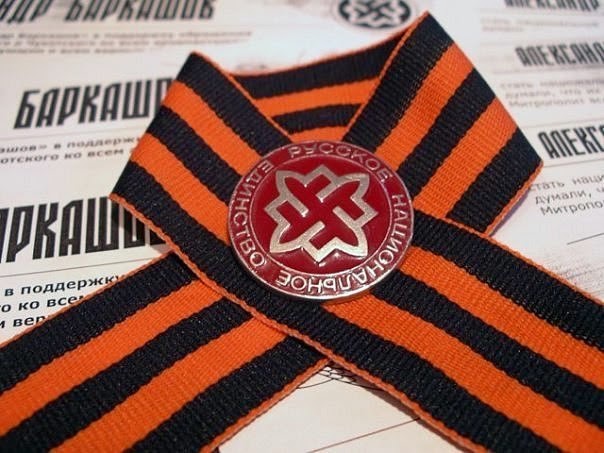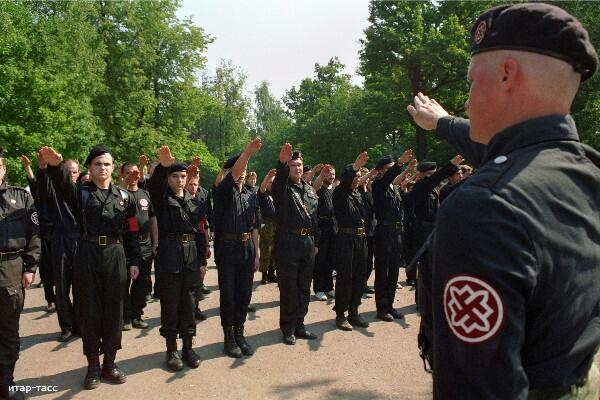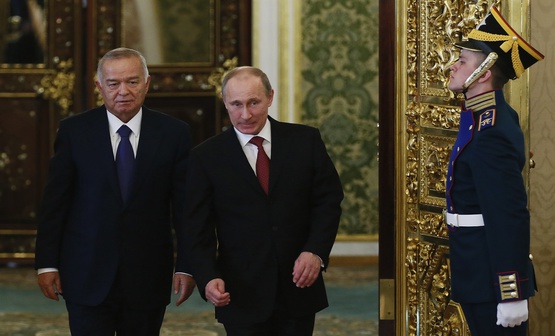Many Ukrainians and others believe that after Vladimir Putin leaves the scene, Moscow will return Crimea and the Donbas to Ukraine and relations between the two Slavic countries will normalize, Anatoly Oktysyuk says. But in fact, Russia may become an even greater threat to Ukraine than it is now.
The reason for that sobering conclusion, the Kyiv analyst says, is to be found in the growing power and influence of the extreme right Russian nationalists in Russia, something that is becoming “a major test not only for Vladimir Putin but also for the future of Ukraine.”
Even more than Putin, Oktysyuk says, these Russian nationalists “do not understand why “Kiev is the mother of Russian cities’ but still up to now is the capital of an independent Ukraine;” and they are likely to act on that belief and take an even more aggressive line regarding Ukrainian statehood.
Consequently, there is “every reason to think” that those who believe a post-Putin Russia will necessarily be better for Ukraine (or indeed for itself and the rest of the world) almost certainly are deluding themselves about the nature and even more the source of the Russian “problem.”
Looking into the future, “after Putin, power in the Kremlin could be seized by representatives of the army and force structures or the nationalists. Either of these variants will carry with them great risks and threats for Ukraine.” Neither of these groups understands why Putin didn’t follow up his success in Crimea by seizing even more of Ukraine.
“Over the course of the last 15 years,” Oktysyuk says, “an entire generation was raised in the spirit of Russian chauvinism and great power views. Moscow, in its opinion, is ‘the third Rome,’ the new center of a world force, which everyone must take into consideration, as they did at some point with the Soviet Union.”
As a result, he continues, “the new Russian geopolitical paradigm by itself excludes the existence of the politically and economically independent states, which arose on the post-Soviet space” and in the first instance, these include Ukraine, whose appearance “on the world map” many in Russia and elsewhere consider “a geopolitical ‘misunderstanding.’”
Putin’s approach to Ukraine, with all its reactive and unpredictable qualities, reflects his effort to balance among various groups in Russia – big business, the bureaucracy, the church, the army and the force structures – all of whom are united by money and power, the Ukrainian analyst argues.
But “the ‘nationalists in principle’ are very angry” about what Putin has not done in Ukraine, and “it is not excluded that under the impact of sanctions and in connection with the significant reduction of Russia’s ‘resource base’ on which the entire system of Putin’s power rests, this boat will begin to rock” because the nationalists want to take command.
If the Russian nationalists came to power, then there would be “more challenges and problems” for Ukraine and the other countries in the region, Oktysyuk says. And “if [Ukraine] withstood the first wave of Russian aggression only thanks to the heroism of the army and volunteers and the mobilization of the active strata of the population, the second wave could be still more destructive.”
Because of that possibility, even likelihood, he concludes, Ukraine must “prepare itself already now,” with the government carrying out “real reforms, modernizing the country and struggling with corruption.”

